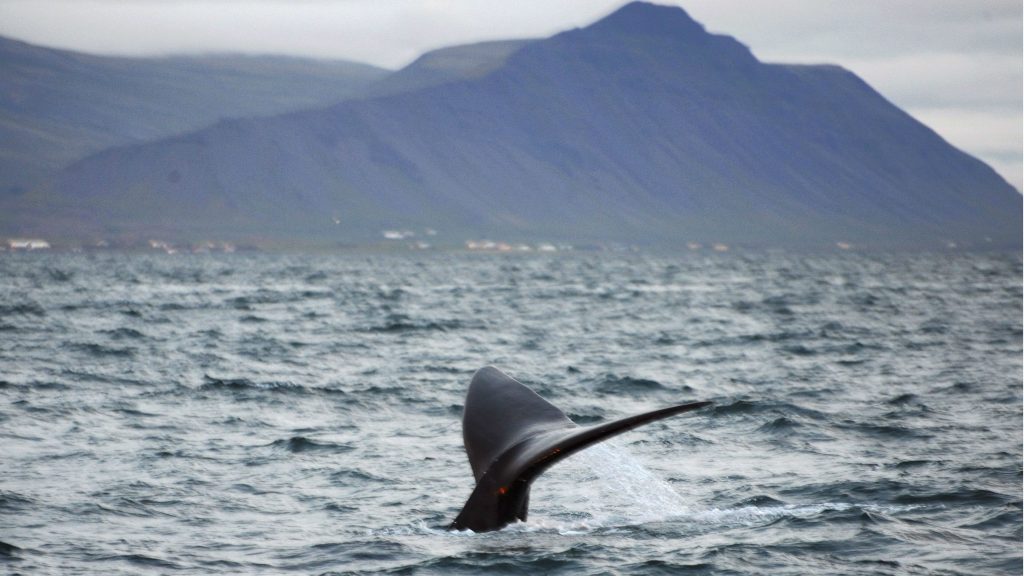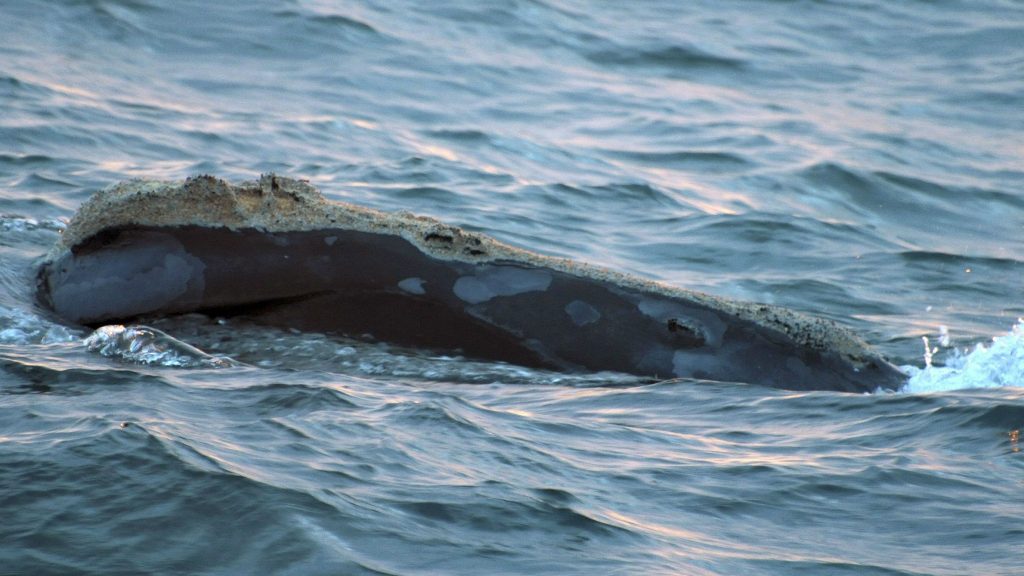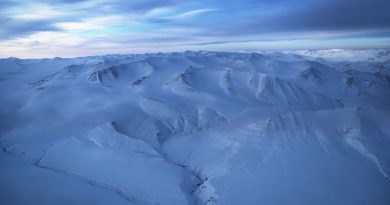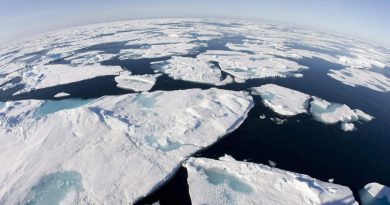Scientists puzzled by right whale’s appearance off Iceland

While it has happened before, seeing an Atlantic right whale swimming in waters off of Iceland is still rare.
But an Icelandic whale-watching crew spotted the right whale named Mogul three times this week, leaving a research scientist wondering why the animal ventured so far from its normal haunts along the eastern seaboard of Canada and the United States.
Philip Hamilton, a research scientist for the Cabot Center for Ocean Life at the New England Aquarium, said seeing a whale there is so rare it has only been noted five times since 1992 in the centre’s database.
Hamilton, who has been studying the North Atlantic right whale since 1986, said three different whales were spotted those five times.
“Two of them were reproductive females who we rarely see. We think there are some right whales who use other habitats [not] close to the eastern seaboard of the United States and Canada.”
Doesn’t fit the profile
Hamilton said he thinks some North Atlantic right whales might be going to Iceland routinely, but the one seen by the whale-watching crew doesn’t fit the profile.
“He’s a 10-year old male we’ve been following quite closely since he was born,” he said. “He’s been seen every year, many times in many habitats and all of them are quite close to shore.
“So, he really seems to be doing something different by being up there.”
Mogul was born in 2008 to a whale named Slalom, has at least four siblings and also four nieces and nephews and was first seen off the southeast of the U.S., where most of the reproductive females are seen.

Since then, the whale has been seen in the Bay of Fundy (Eastern Canada) and off Massachusetts (Northeastern U.S.).
“So that’s his normal haunts,” said Hamilton, adding even though the right whales swim slowly, they can cover long distances.
“Recently, right whales have had to go further distances to find food because many of their usual feeding habitats have not been up to par.”
Things are changing
Hamilton said the ocean is changing and right whales have to go farther to find good feeding grounds.
“How he managed to find his way up there, who knows. We know the female right whales actually show their calves good places to go, but his mom has been a very coastal mom throughout her life, so how he found his way is a whole other question.”
Hamilton said he thinks this is an indication that things are changing.
“The change in his sighting profiles suggest that it is a real change in behaviour.”
Researchers studying the endangered species have numbered all of the whales and named some of them. Photographs from sightings, along with related information, go into the North Atlantic Right Whale Catalog as a resource for researchers.
Tracking the majority of the population of North Atlantic right whales, and where they feed and congregate, is becoming a problem in the last eight years, Hamilton said.
There are more than 100 right whales in the Gulf of St. Lawrence (eastern Canada), the only concentration of right whales they know of Hamilton said.
“There are about 450 right whales left, so that leaves 350 unaccounted for. So it’s a large chunk of the population that we’re not able to track at the moment.”
With files from Shift
Related stories from around the North:
Canada: Beluga tour operators in Northern Canada decry new rules protecting marine mammals, Radio Canada International
Finland: Endangered Finnish seal population slowly recovering, Yle News
Norway: Northern Barents Sea warming at alarming speed, The Independent Barents Observer
Russia: Polar bears greatly exposed to toxic chemicals in eastern Barents Sea, The Independent Barents Observer
Sweden: Poachers suspected behind dwindling wolf numbers in Sweden, Radio Sweden
United States: Communities wrestle with shark-bite mystery off Alaskan coast, Eye on the Arctic



